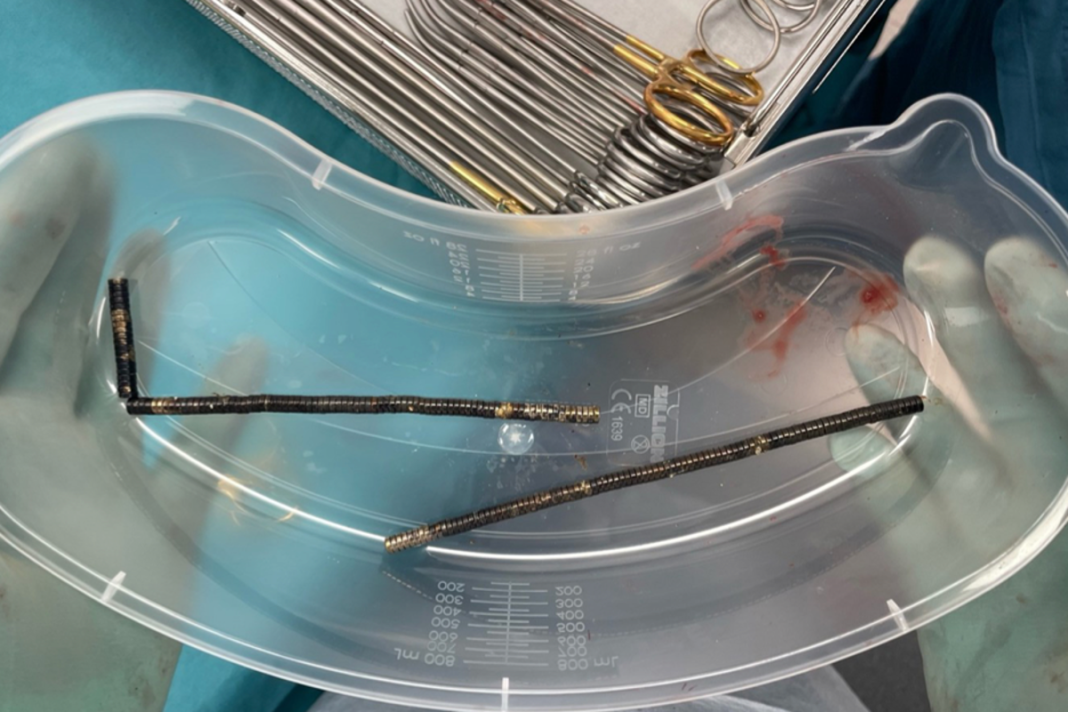Key Takeaways
- A 13-year-old boy in New Zealand required emergency surgery after swallowing up to 100 high-powered magnets purchased from Temu
- The magnets, banned for personal use in New Zealand since 2014, caused life-threatening intestinal damage
- Doctors warn online marketplaces make dangerous magnets easily accessible to children
Doctors in New Zealand performed emergency surgery to remove part of a teenager’s intestine after he swallowed dozens of powerful magnets bought from online marketplace Temu. The 13-year-old boy ingested approximately 80-100 small neodymium magnets, which had been banned for personal or domestic use in the country since 2014.
Surgeons described the case as “alarming,” highlighting how online platforms enable children to easily access dangerous products despite existing bans.
Medical Emergency Details
“We present the case of a 13-year-old boy admitted to hospital with four days of generalised abdominal pain,” surgeons at the Tauranga Hospital wrote in the New Zealand Medical Journal.
“He disclosed ingesting approximately 80–100 5x2mm high-power (neodymium) magnets about one week prior, which were purchased from an overseas online marketplace (Temu),” they wrote in the study.
Neodymium magnets are among the strongest available and can cause severe internal damage when swallowed. These powerful magnets can attract through intestinal walls, creating holes or abnormal connections between organs.
Life-Threatening Dangers
“When swallowed, these magnets can attach to each other through the bowel, leading to fistulas, which are abnormal connections between two parts inside of the body, or they can create holes in the intestines,” paediatric gastroenterologist Sunpreet Kaur said.
“These magnets can do a lot of damage, require surgery, or even cause death when swallowed,” according to a blog post by the University of California Davis Health.
Online Marketplace Risks
Medical researchers say this case underscores the dangers online marketplaces pose to children. The magnets are often marketed as educational toys or fidget devices, making them appealing to young users.
“We believe this case highlights the dangers of online marketplaces in our paediatric population,” the doctors wrote.
“Unfortunately, they often come as brightly coloured small balls, making them attractive for children to swallow. Indeed, small high-power magnets are so dangerous that they are banned for sale in certain situations in both Australia and New Zealand,” said professor Alex Sims from the University of Auckland.
Enforcement Challenges
While New Zealand law prohibits selling these magnets for personal use, enforcement becomes difficult with overseas online platforms. Children can purchase them cheaply without age verification.
“The issue of enforcement compounds when, as the authors note, products are purchased on overseas online marketplaces, which are easily accessible by children, with purchases being inexpensive and not always requiring age verification’,” Dr Sims said.
Experts emphasize that parents must supervise all online purchases made by children to prevent similar incidents.
Company Response
Temu launched an internal review after learning about the incident. The company expressed concern and emphasized its commitment to product safety.
“We are sorry to learn about the reported incident and wish the boy a full and speedy recovery,” Temu said, according to Radio New Zealand.
“We take product safety very seriously and continuously monitor our platform to ensure sellers are complying with the safety regulations of the markets they are doing business in,” the company said.




